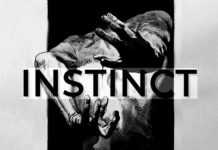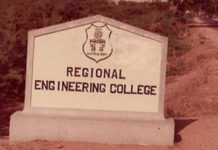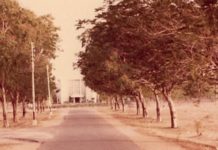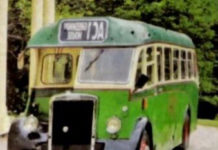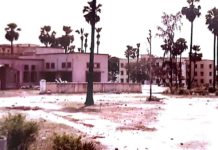ROTI AUR MAKAAN
The District Collector made the decision to provide water connection to each of the tenements. The Executive Engineer with the Electricity Board happened to be a fellow classmate of Shri. K.V.N. Appa Rao. Electricity connection and energy meters were installed immediately. The sewage system and septic tanks were checked and put into operation.
KITCHEN, MESS AND SUPPORT STAFF:
Shri. K.V.N. Appa Rao went to Hyderabad (at the suggestion of his friend in Warangal) to meet with Shri. Seetharama Rao, the proprietor of New Mysore Café. Shri. Seetharama Rao in turn directed him to a dealer in utensils, with an introduction. The kitchen utensils and implements, in their entirety, were loaded onto a truck. Mr. Seetharama Rao also directed Shri. Shetty, from amongst his staff, to go to Warangal with Shri. Appa Rao to man the kitchen there. The truck with Shri. Appa Rao in the front seat, Shri. Shetty and his assistant in the rear with the utensils/implements and a ‘Godrej’ safe moved to the Hanmakonda hostel. No payment was made until much later, when funds were allotted to the College.
Upon arrival in Hanmakonda, the materials were unloaded. The tall, hefty Shri. Shetty singlehandedly unloaded the ‘Godrej’ safe. He just lifted it off the truck and put it on the ground. Shri. Muthukrishnudu witnessed this episode. He immediately instructed Shri. Appa Rao to build a special brick enclosure around the safe inside the ‘Office’ tenement, to make it safer!
Shri. U. Raghurama Rao, the first batch student with Roll.No.1, joined the college after Shri. Seetharama Rao asked him to apply for admission. Later in life, after establishing himself as an engineer, he married Shri. Seetharama Rao’s daughter.
Shri. Shetty manned the kitchen with a couple of assistants, and ably coped with the demands of a disparate group of students coming from all parts of India. ldlis were par for the course most of the time. How can we forget the ‘Bread and Sambaar’ breakfast that was served, frequently? At that time we hated it, not realizing the logistical problems of feeding 250 students within an hour, in four small rooms, early in the morning. Parathas, Pooris with Potato-Onion Pallya or Pancakes in the form of Dosas, Uthappams or ‘Pesarattu’ (made out of ground pulses) would be served on Sundays and holidays, when there was a little more time for the morning breakfast.
Milk suppliers would run away as soon as they saw Shri. Appa Rao approaching them at the Hanmakonda Chowrasta. This problem was permanently sorted out by the intervention of Shri. K.S. Hebbar, the owner of Annapooma Lodge, in Warangal. He was married to the elder sister of B. Venkata Rao (Roll No. 2). Milk was supplied directly to the hostel, thereafter.
When the wheat available locally was found to be of poor quality the Special Officer sent the College truck to Vijayawada to get good quality wheat. He was always ready to improve matters whenever they needed to be addressed.
FURNITURE:
Shri. Appa Rao used his contacts, first with the Forest Officer to release teak wood for the manufacture of furniture for the hostel rooms and also for the temporary classrooms. A second contact, in the person of the District Industries Officer, ensured that they were manufactured and delivered on time. And true to form, no immediate payment was made!
The hostel was set up and made functional in an amazingly short time. It was networking and ‘project management’ at its best!
THE OTHER COOK:
Johnnie was an assistant to Shetty, the head cook. He was also to prepare non-vegetarian meals for students. During Ramzan month, he would get up early to prepare ‘Sargi’ for the Muslim students, much before dawn. Preparing for examinations meant all night revisions, etc. We were happily served delicacies along with our other friends for the whole month.
FOOD CONTESTS:
Separate competitions were held for ‘Idlis and Pooris’. Both were timed events and many students participated. Slowly, but surely, participants dropped out during the event, unable to compete with the two front-runners. By the time the front-runners had crossed eating thirty each, they had no one else to contend with. It was a right royal battle, from then on, in both events. Everyone expected the taller and better-built competitor to win. He made one small error. He sipped some water in between devouring two idlis and he tasted some ‘Pallya‘ with the ‘Pooris’. He lost both the competitions. The winner consumed four more in each event with bravado to show who was unassailable.
This article is the four in a series of many, compiled by RECW’s 1964 batch for the Coffee Table Book, published in 2014. We thank Mr. S. Sampath Iyengar and his team (Batch of 1964) for giving us permission to share this with the NITW community. We also thank Professor CSRK Prasad for helping us make this happen.

